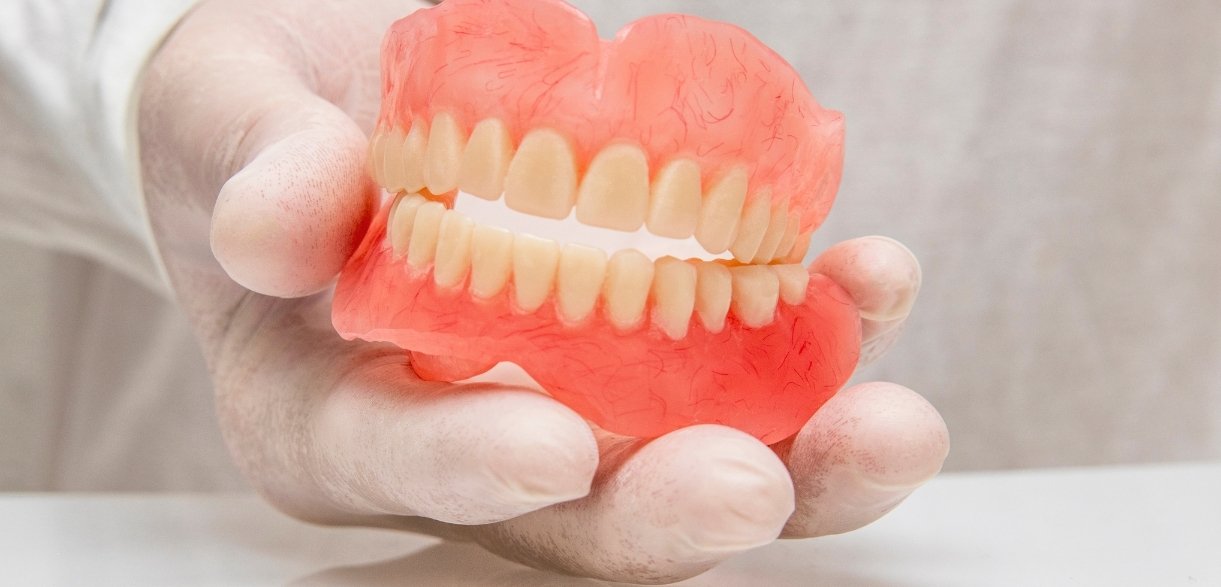
By West Albany Dental
Getting new dentures is a significant step in dental health. They can transform your smile and improve your confidence. However, adjusting to new dentures can be challenging. This post aims to guide you through the first 30 days with your new dentures. It will cover what to expect, how to manage discomfort, and tips for daily care.
Remember, you are not alone in this journey. Many people experience similar challenges, and with patience, you will adapt. This post aims to provide reassurance and support as you embrace this change.
Understanding Dentures
What Are Dentures?
Dentures are removable appliances that replace missing teeth. They can be full or partial. Full dentures replace all teeth in the upper or lower jaw. Partial dentures fill in gaps when some natural teeth remain. Immediate dentures are placed right after tooth extraction. They allow you to avoid going without teeth during the healing process.
Why People Get Dentures?
People choose dentures for various reasons. The most common reasons include tooth loss due to decay, injury, or gum disease. Missing teeth can affect chewing, speech, and self-esteem.
Dentures offer a practical solution to restore function and aesthetics. They help improve one’s ability to eat and speak confidently and support facial structures, enhancing one’s appearance.
The First Week: Adjusting to Your New Dentures
The first week with new dentures can be a time of significant adjustment. Initial sensations may include feelings of pressure, looseness, or discomfort. It’s common to feel like your dentures do not fit perfectly right away. This is part of the adjustment process, as your mouth needs time to adapt.
When it comes to eating and drinking, start with soft food such as yogurt, applesauce, or mashed potatoes. This food is easier to chew and will help ease discomfort. Take small bites and chew slowly, as this will help you get used to the feel of the dentures while minimizing irritation. Staying hydrated is also essential; drink plenty of water to keep your mouth moist and comfortable.
Oral hygiene is crucial during this period. Clean your dentures daily using a soft brush specifically designed for them. This helps prevent plaque buildup and keeps them fresh. Do not forget to care for your natural teeth and gums as well. Brush your remaining teeth at least twice daily to maintain oral health.
Days 8-14: Building Comfort and Confidence
During days 8 to 14, you may notice improvements in your comfort level. Speech and communication can be one of the biggest challenges. You might find it difficult to pronounce certain words. Practice speaking aloud in front of a mirror to help build confidence and improve clarity.
Managing discomfort is still important during this time. If you experience soreness, consider using over-the-counter pain relief. Applying a soothing denture adhesive can also provide extra comfort and stability. If pain persists, reach out to your dentist for advice and possible adjustments.
Regular check-ins with your dentist are vital as well. Schedule follow-up visits to ensure your dentures fit properly and to address any issues. These appointments are essential for making necessary adjustments and ensuring your comfort. Your dentist can help you navigate this adjustment period effectively.
Days 15-21: Establishing Routine
By days 15 to 21, you should start feeling more comfortable with your dentures. Focus on eating habits during this time. Gradually introduce harder food, such as soft vegetables or tender meats, into your diet. Chewing techniques can help make eating more enjoyable. Remember to take your time and chew thoroughly to avoid discomfort.
Maintaining oral hygiene continues to be a priority. Brush your dentures daily and soak them overnight in a denture cleanser to keep them fresh. Do not forget to brush your natural teeth, as this prevents gum disease and maintains overall oral health.
Managing expectations is crucial. Understand that everyone adjusts at different rates. Some discomfort may persist for weeks, but it should gradually decrease. Be realistic about your adjustment timeline, and give yourself time to adapt to your new routine.
Days 22-30: Finding Your New Normal
As you reach days 22 to 30, you should notice a significant improvement in comfort and fit. Look for signs that your dentures fit well, such as minimal movement and no sore spots. If you still experience discomfort or looseness, consult your dentist for adjustments.
Socializing may feel easier during this period. Focus on building confidence in social settings. Practice speaking and eating privately to boost your comfort level before engaging with others. Positive interactions can help alleviate any anxiety you may feel.
Finally, be prepared for some lifestyle adjustments. Certain food may still be challenging, so avoid hard, sticky, or crunchy items. Embrace new eating habits and stay mindful of your body’s needs. Engaging in light physical activities or hobbies can also help you feel more at ease in this new phase of life.
The first 30 days with new dentures can be a journey of adjustment. Remember that discomfort is normal, and patience is essential. Follow the tips provided to ease your transition. Maintain open communication with our dentists for any concerns. With time and care, you will find your new normal. Embrace this new chapter in your life and enjoy the benefits that dentures can bring!








